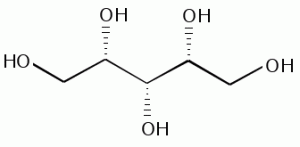Helping Thousands of People Each Year Find Dental Services
- Emergency dental surgery, cavities, general dental care.
- Find immediate help, no insurance required.
- Get relief from chipped, cracked or lost teeth, abscesses or toothaches.
Chewing Gum: The Habit That May Help Or Harm Your Dental Health
From the anxious NFL coach to the elementary school student that needs a bit of a distraction, chewing gum has been a part of American culture for decades. From the early days when “Bazooka” gum had comics on the inside of the wrapper on up till the present when ultra fresh brands rule the market, many across the globe love to pop a piece in their mouth several times a day.
Many claim that it can help them curb cravings for smoking, put a stop to nervous energy, and gives them an added burst of extra flavor to their day. The kinds of gum that have sugar are a bit more popular and known for their flavor, but sugar-free gum is more suitable and healthy overall.
If you happen to be suffering from heartburn, the extra saliva that is produced by chewing gum can do a great job of balancing the acids in the stomach. If you chew sugar-free gum for at least 30 minutes,
In the long run, it seems that chewing gum can actually help people lose weight: it does a great job of preventing what’s known as comfort eating. Having a piece of gum in your mouth can help greatly to reduce appetite, and the psychological aspects of craving something are the ones that eventually can get you into trouble with weight gain.
When the gum you choose is full of sugar, it can actually drastically increase your chances of getting a cavity. If you already are suffering from TMD or TMJ, chewing gum can make the symptoms of these conditions worse as well. Some of the sugared flavors that have come out lately taste great, but can be quite a detriment on the healthy condition of your teeth.
Some gum flavors that are enriched with sweeteners like aspartame have been linked to cancer. Many are aware of these issues, but the way that products are marketed these days, you can stumble across something that you think is great for you, but won’t know the hazards of unless you read the label. If you have recently had work such as crowns, bridges, or fillings, they could potentially be loosened or broken by chewing gum of the very sticky variety.
Sugar-free gum with the sweetener Xylitol can do a great job in helping to fight the decay of teeth. It has been shown to slow the growth of bacteria called streptococcus mutans, which is a major cause of many cavities. If you chew the gum quite frequently, it can prevent this particular bacteria from forming at all.
Another ingredient known as calcium lactate can boost the minerals in tooth enamel that are known to be helpful and that can boost the minerals that aid strength in tooth enamel. Sorbitol, mannitol, and aspartame are approved by the American Dental Association as safe sweeteners, but you just always have to keep your own best interest in mind when selecting a brand.
The companies that sell gum need to demonstrate that the product meets requirements for safety and efficacy for the category, such as sugar-free chewing gum. Reducing plaque acids, ability to reduce cavities, reducing gingivitis, and completing studies showing that the gum is safe to oral tissues are all other elements of the approval process.
At this time, the only gums with the ADA Seal are of the sugarless variety, and are enhanced with sweeteners such as sorbitol, mannitol, or aspartame. Chewing gum that does contain sugar still has a positive affect on increasing saliva flow, but the sugar it contains can be used by plaque bacteria to produce acids that can ultimately cause decay. If you look for gum that contains the ADA Seal, you can rest assured that you are getting one of the best sugar-free products there is: companies that have the seal have trusted claims about packaging and testing of their product.
Medically Fact-Checked & Written by Our Dental Editorial Team
You can read more about our editorial guidelines by clicking this link and learn more about the Emergency Dentists USA editorial team here.












